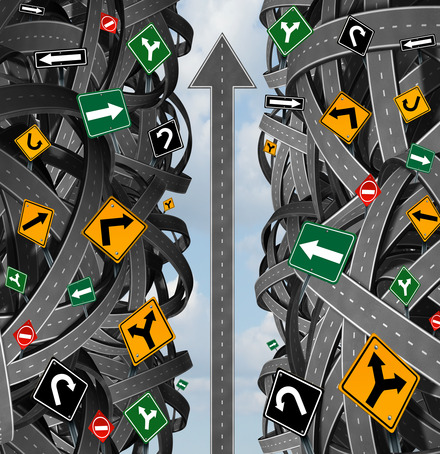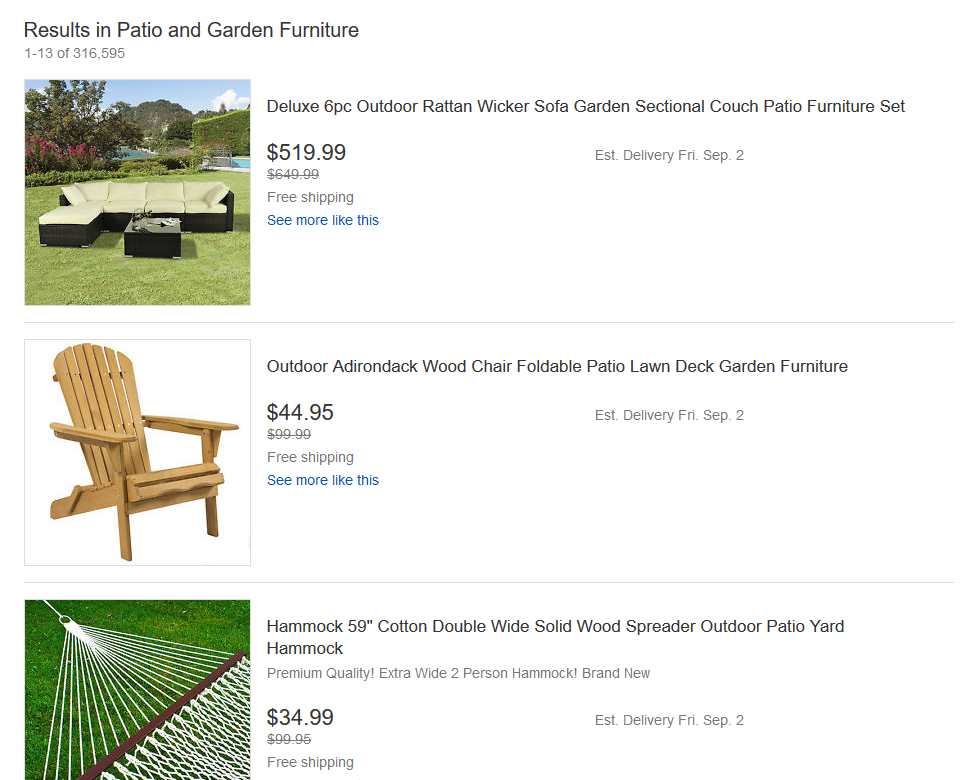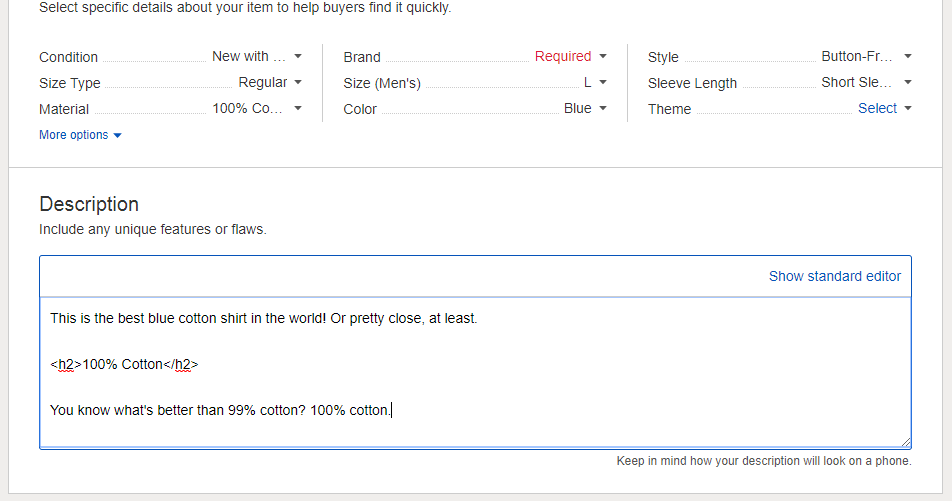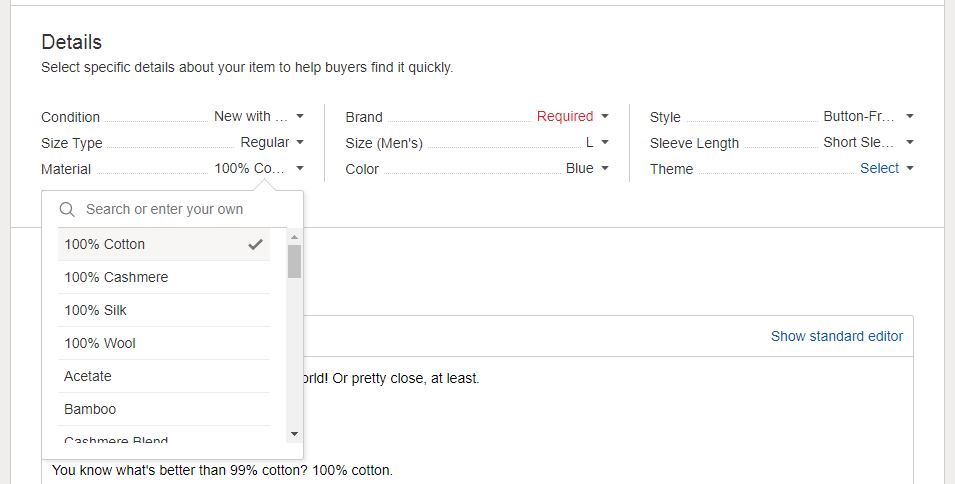Gone are the days of listing an item on eBay and waiting for someone to buy it. Ever-increasing competition means you must learn how eBay SEO works to compete—and that means understanding their Cassini search engine.
Ready to get lightyears ahead of the competition? Let's look at what Cassini wants and how you can rocket your listings past everyone else's in search.
Last updated 6/6/2018.
What Does the Cassini Search Engine Look For?
Above: An artist’s rendering of the Cassini–Huygens probe, the namesake of eBay’s Cassini search engine.
To optimize for a search engine, you have to know what it looks for. Google wants you to provide the info or entertainment their users seek; a good Amazon SEO strategy is about selling to everyone who clicks through; Cassini focuses on engagement.
“In order for you to get to the top of search, predominantly, it’s all about buyer engagement,” eBay Australia’s Todd Alexander says in this video.
Above everything else, eBay’s search engine ranks listings based on simple algorithms for engagement:
Impressions / clicks = engagement.
Visitors / watchers and buyers = engagement.
Of course, there are more details than that, but eBay keeps those cards close to its chest.
The other major consideration for Cassini is whether you are the right seller for the buyer.
High engagement is one of the best ways of determining that. After all, if they watch your listing, it means they like what they saw. And if they buy, well, ’nuff said.
But other factors also play a critical role in determining who the right seller is in eBay's SEO algorithms. Here's the full list:
- Engagement.
- Customer service.
- Pricing.
- Content optimization and quality.
- Sales history.
1. Engagement—the Heart of eBay SEO

Ultimately, your listing’s ability to get watchers and buyers is the most important part of eBay SEO. But how do you do that?
Great Photos
Nothing helps more than great photos. Use all 12 image slots that eBay provides, and if you can’t afford professional photography gear yet, at least get a tripod and a clean white background. See our article on how to take photos for eBay for more detailed advice.
Key Information
Explain all the important features of your product. A buyer shouldn’t have to do any research outside your listing to decide whether they want it. If they have doubts, they’ll leave.
Top-Notch Writing
Customers can’t pick an item up and examine it when buying online. Your description should make them feel like they have.
Accuracy
Never use irrelevant terms.
Example: If a customer searching for a Batman shirt winds up finding your Superman shirt, they aren’t going to buy it. It just isn’t what they want. So unless your shirt is specific to Batman v Superman, leave the Dark Knight out of it!
Could irrelevant keywords get you more views? Sure. But they won’t get you buyers, and anyone who just looks at your product and leaves will hurt your engagement rate. Cassini will kick you down a notch every time this happens, and eBay may take more drastic steps if they catch you abusing keywords like this.
2. Customer Service

Customer service has an immediate and obvious effect in increasing engagement: If you have a high eBay feedback score, more customers will see you as trustworthy and buy from you. That means higher rankings! A bunch of negative reviews, on the other hand, will send them running and your search rankings plummeting.
It also affects search directly. Although eBay no longer explains exactly how customer service impacts rankings, they stated in their 2017 help materials that if you have low detailed seller ratings, or worse, if buyers make claims against you, your rankings will fall. (Now they just say that providing high levels of service will improve your rankings.)
In short, bad reviews will hurt your search rankings; good ones will help them even before engagement comes into play. Those who want high rankings should therefore provide exceptional customer service.
Start with a competitive eBay returns policy:
- Offer 30-day returns or better (a requirement for Top Rated Plus listings).
- Pay for the return shipping if feasible.
- Accept returns no questions asked.
Answering quickly also makes a huge difference. The longer a customer waits, the angrier they’ll get, the more likely they’ll leave a negative review, and the more inclined they’ll become to file a claim with eBay or PayPal. That could be disastrous for your eBay SEO.
Of course, the inability to have multiple users on one eBay account means you can’t normally field a whole eBay customer service team. We recommend integrating eBay with a helpdesk to solve this problem and make customer service way easier.
3. Pricing

Pricing is an interesting criterion for eBay. While Amazon emphasizes providing a great deal for the customer, Todd Alexander states that eBay doesn’t necessarily consider the lowest price the best. Instead, eBay recommends that you price competitively.
This is probably because eBay’s fees are proportional to the price of goods sold. If they favor items with really low pricing, they’ll make less money. However, if prices are too high, nobody will buy anything and they won’t make a dime.
Alexander implies that the middle ground is the best place to be. You’ll have an edge if you charge less than most of the competition, but the guy who undercuts everyone on price also undercuts his own rankings.
Note that eBay counts shipping costs when determining whether you price competitively.
Of course, all of that only applies to searches sorted by Best Match. If the user sorts by “Price + Shipping: lowest first,” the lowest-priced listing wins.
For a detailed explanation of pricing, including engagement-boosting strategies like psychological pricing, see How to Price on eBay.
4. How You Write Your Listing
Good use of keywords and quality writing are gradually falling in importance due to the shift to product-based shopping. (See eBay Business Strategy 2018–2019 for detailed info on this change.) If you match your item to the eBay catalog while listing, content like the title may be filled in automatically. Eventually, you might not need to enter any content at all unless you're the first person to list the item.
But keywords and writing still matter today. Cassini won’t know to rank you for a keyword you never use.
There are three key locations for keywords: your title, your description, and your item specifics.
Titles
Your title should at least nod toward grammar and style. Where possible, enter words in the order people would naturally enter them when searching. But at the same time, try to cram in as many important keywords as you can.
Use keywords that are specific to your item in your title. You don’t need to use a generic keyword like “outdoor” if you’re selling tiki torch fuel. Focus on keywords customers will actually use when searching for a product like yours—in this case, terms like “citronella,” “mosquito repellent,” and of course, “tiki torch fuel.” ("Not for white supremicists," while satisfying to add, is an inadvisable use of that limited space.)
Why stay specific? Because someone searching for generic terms like “outdoor” could be looking for anything. eBay might temporarily rank you for that term, but there’s a high chance you’ll have low engagement with it. Down plunge your search rankings again.
You’ll also already be in an outdoor category. eBay considers ranking you for any keyword you’re in a category for, so why waste the space in your title?
The examples in the image above do use the keyword “outdoor.” That’s because they’re competing for big phrases like “outdoor furniture” and believe in their ability to make sales if they rank for the category name itself.
They are the exceptions to the rule—products with extremely broad appeal. The bottom two both have well over 1,000 sales. So if you feel your item can play in the big leagues and really think you can convert using those broad keywords, take a swing at them.
Descriptions
A well-written description will compel your customers to buy your product. That’s money in your pocket now and higher search engine rankings later. But is there anything else you should consider?
Hugh Williams, who helped create Cassini, says that it is designed to search all the text in a listing. Voyager (the previous search engine) only searched titles. Now you can be sure Cassini is peering into your description before deciding whether to rank you for a keyword.
It’s unclear exactly how your description affects eBay SEO. Danna Crawford (a.k.a. the Power Selling Mom) recommends using <h> tags much like you would to optimize for Google. Whether this really has an effect or not, it can’t hurt to try, especially since a good <h2> header here or there does a lot to make a webpage more visually appealing.
Should you worry about where you place keywords in your description? As mentioned above, you can rank for a keyword that you haven’t used in your title as long as you list in a category for that word. That makes me think it works a lot like Amazon SEO, where all that matters is that you’ve used the keyword at least once somewhere in your listing.
Until eBay confirms that, it probably wouldn’t hurt to treat Cassini like Google when deciding on keyword placement. That means use your primary keywords early in your description and somewhere in your <h> tags whenever reasonable.
Item Specifics (Details)
Item specifics also matter in eBay SEO, and Cassini will check them when deciding whether to rank you for a keyword. Fill out every single field that you can. So if you’re selling a cotton shirt, go to the item specifics and select “cotton” as the material so you have a chance of showing up in searches for cotton shirts.
5. How Sales History Affects eBay SEO

eBay will keep track of your engagement rate on each listing. If you keep the listing running indefinitely, then it has a chance to build up a serious sales record and keep it going. But doing this can also hold some listings down.
If your product’s been selling well, then your sales record is a boon. eBay will respect your high engagement rate and reward it with higher rankings. But if you have a track record of selling little and getting few watchers, your record is deadweight.
Consider taking your listing down if it’s selling poorly and getting poor search results. Then use Sell Similar or create an all-new listing to get a clean slate. eBay will give you another shot at appearing near the top of search results, letting you build your engagement rate again from scratch.
Note that Cassini cares much more about your recent performance than ancient history. If your product sold well six months ago, that might give you a small boost, but if the last month has been complete crap compared to other listings for similar products, it will probably ignore your glory days. On the flipside, if sales have been through the roof for the past two weeks, Cassini will forgive you for years of selling nothing and boost your rankings immediately.
Summary: What Should I Focus On?
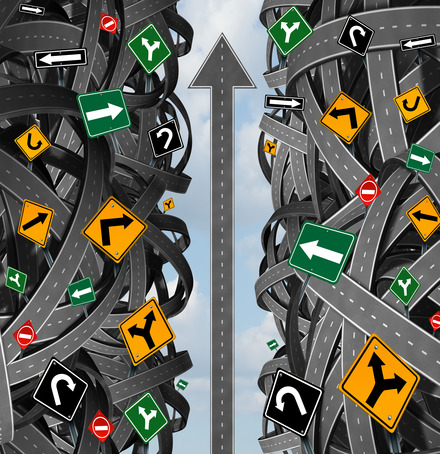
If I had to boil eBay SEO down to a few core points, I would say the following are what matter most:
- Create killer sales materials for your listings to drive engagement.
- Fill in every single field eBay provides you with.
- Provide unbeatable customer service—integrate with a helpdesk to make it easier.
- Offer competitive but fair pricing, free shipping, and a liberal returns policy.
- List in your precise category and use only accurate and honest keywords.
Do all that, and the Cassini search engine will become your new best friend.
Strategies for getting noticed on eBay are changing. See our article on eBay business strategy in 2018 and 2019 to prepare for the future of eBay search.




